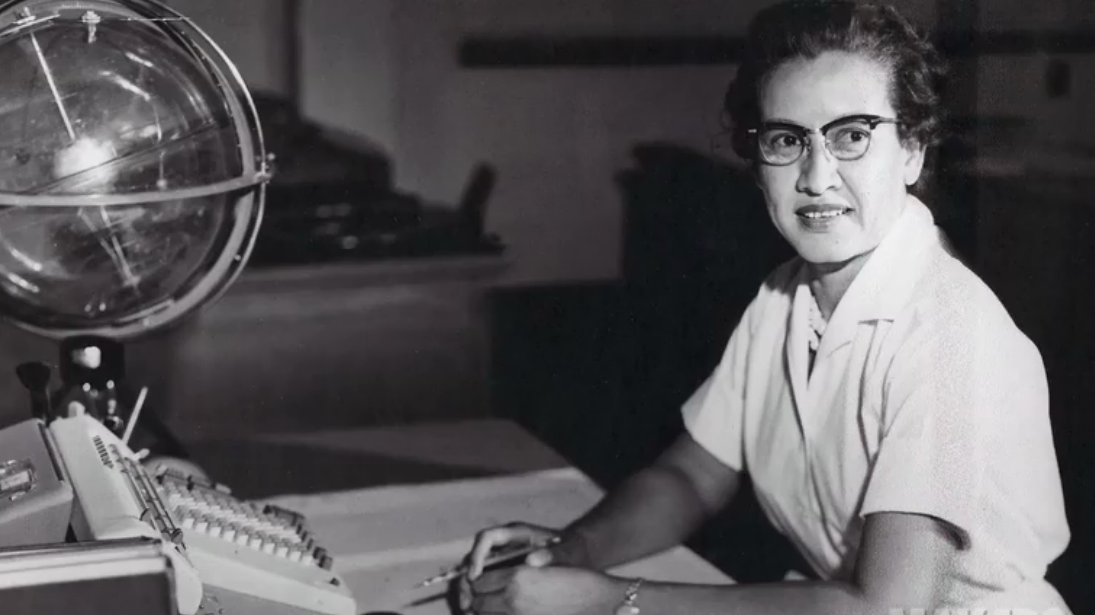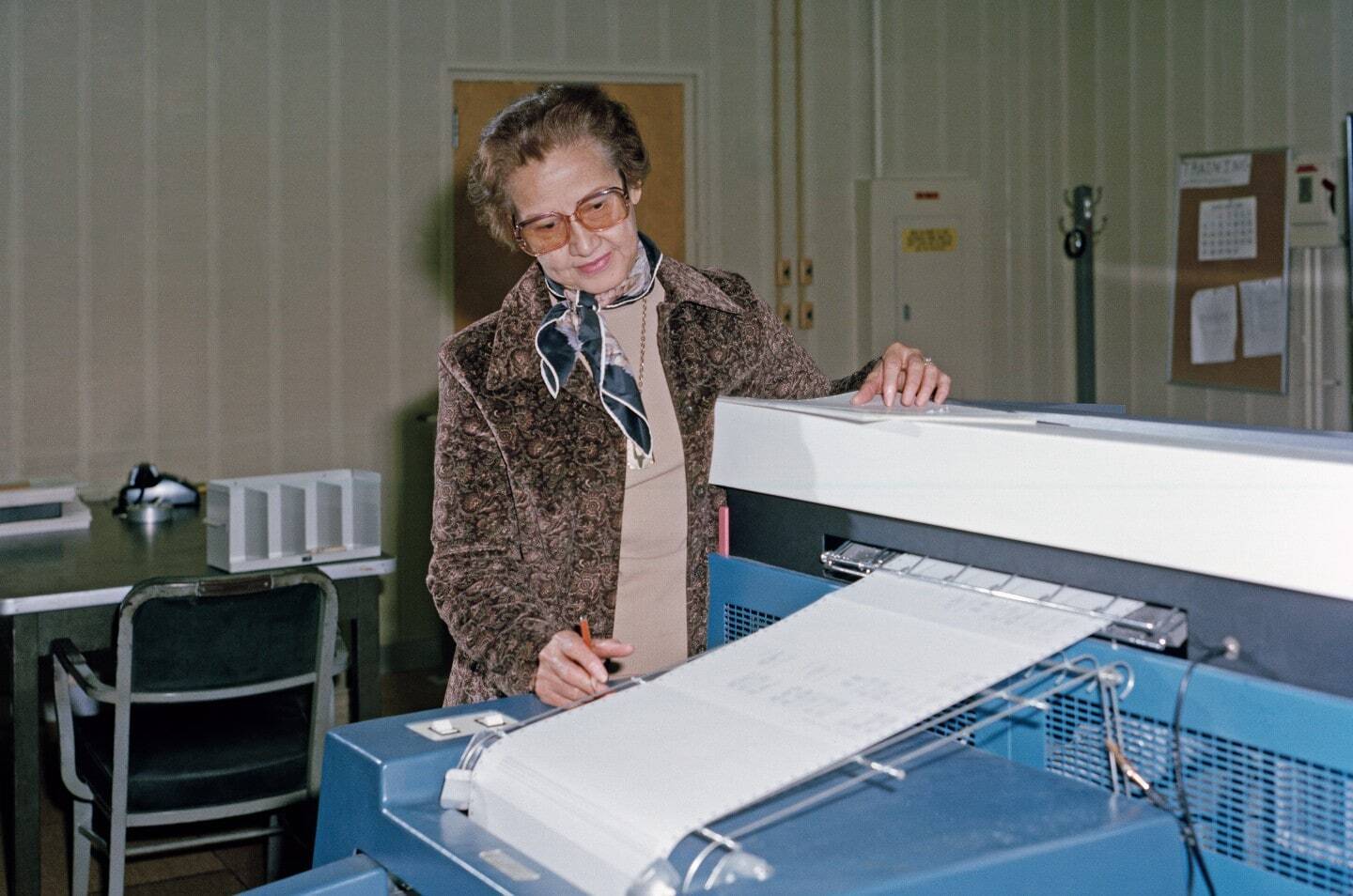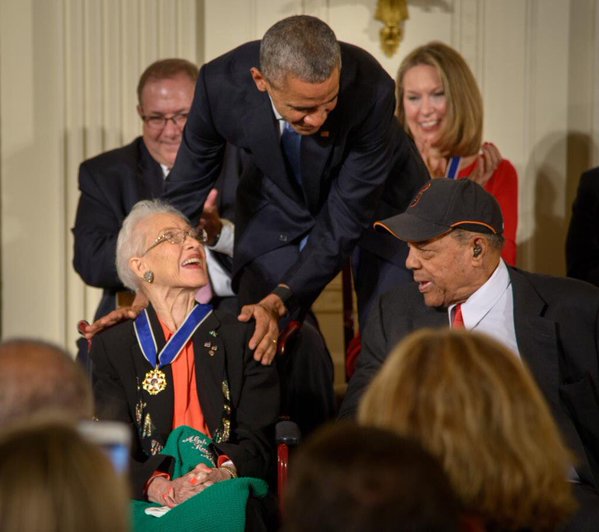
Katherine Johnson, a brilliant mathematician who was instrumental in helping NASA send Americans into orbit in 1961, and later to the moon, died on Monday, February 24, 2020. The human "computer" is credited with codifying the mathematical principles that remain at the core of space travel to this day.
Johnson, who was born in West Virginia in 1918, was fascinated by numbers from a young age. A gifted student, she graduated from high school at 14 and earned a dual degree in math and French from West Virginia State College. Johnson started her working life as a teacher before joining the National Advisory Committee for Aeronautics — the agency that would become NASA — in 1953. "Everybody there was doing research," she recalled in later years. "You had a mission, and you worked on it."

The math prodigy was one of five African American women assigned to do computing in the guidance and navigation department at the Langley Research Center in Virginia. Not surprisingly, the women faced both racism and sexism from their mostly white male counterparts. However, that did not seem to bother Johnson. "I did not feel much discrimination, but then that's me," she recalled in a 1992 NASA oral history interview. Even blatant racism, such as when a white colleague stood up to leave as she sat next to him, did not seem to faze Johnson. "I don't wear my feelings on my shoulder." she explained. "So I got along fine."
Johnson's first project, completed in collaboration with dozens of colleagues, was a 600-page technical report outlining the mathematical calculations of spaceflight from rocket propulsion to orbital mechanics and heat protection. The research paper identified that the biggest challenge would be computing a flight trajectory to ensure astronauts returning to Earth would splash into the ocean close to the Navy vessel stationed to extract them from the water.

The calculations were relatively straightforward for American astronaut Alan B. Shepard Jr.'s 1961 historic suborbital flight, since the spacecraft did not enter orbit. However, manually calculating the trajectory for John Glenn's 1962 orbital flight, which circled the Earth three times, was a little more complicated. Never one to step away from a challenge, Johnson volunteered for the job. "I said, 'Let me do it,'" she recalled in a 2008 NASA interview. "You tell me when you want it and where you want it to land, and I'll do it backwards and tell you when to take off."
The 1960 paper, written with engineer Ted Skopinski, which allowed NASA to determine when to launch the spacecraft and when to begin its reentry, was the first technical report by a woman in NASA's elite flight research division. Johnson, who attributes her success to her assertive personality, went on to author several more research papers, including trajectory calculations for the first moon landing and the space shuttle program.

Despite her achievements, Johnson remained mostly unknown until 2015, when President Barack Obama awarded her the nation's highest civilian honor, the Presidential Medal of Freedom. She became a household name in 2016 following the best-selling book Hidden Figures by Margot Lee Shetterly and its Oscar-nominated film adaptation. The story celebrates the contributions Johnson and her fellow NASA mathematicians Dorothy Vaughan and Mary Jackson, made to the US space agency.
The math prodigy, however, always downplayed her crucial role in the early years of the space program. In a 2017 interview with the Washington Post, Johnson said, "There's nothing to it — I was just doing my job. They needed information, and I had it, and it didn't matter that I found it. At the time, it was just a question and an answer."
RIP Katherine Johnson
Resources: NPR.org, Washingtonpost.com, Wikipedia.org
